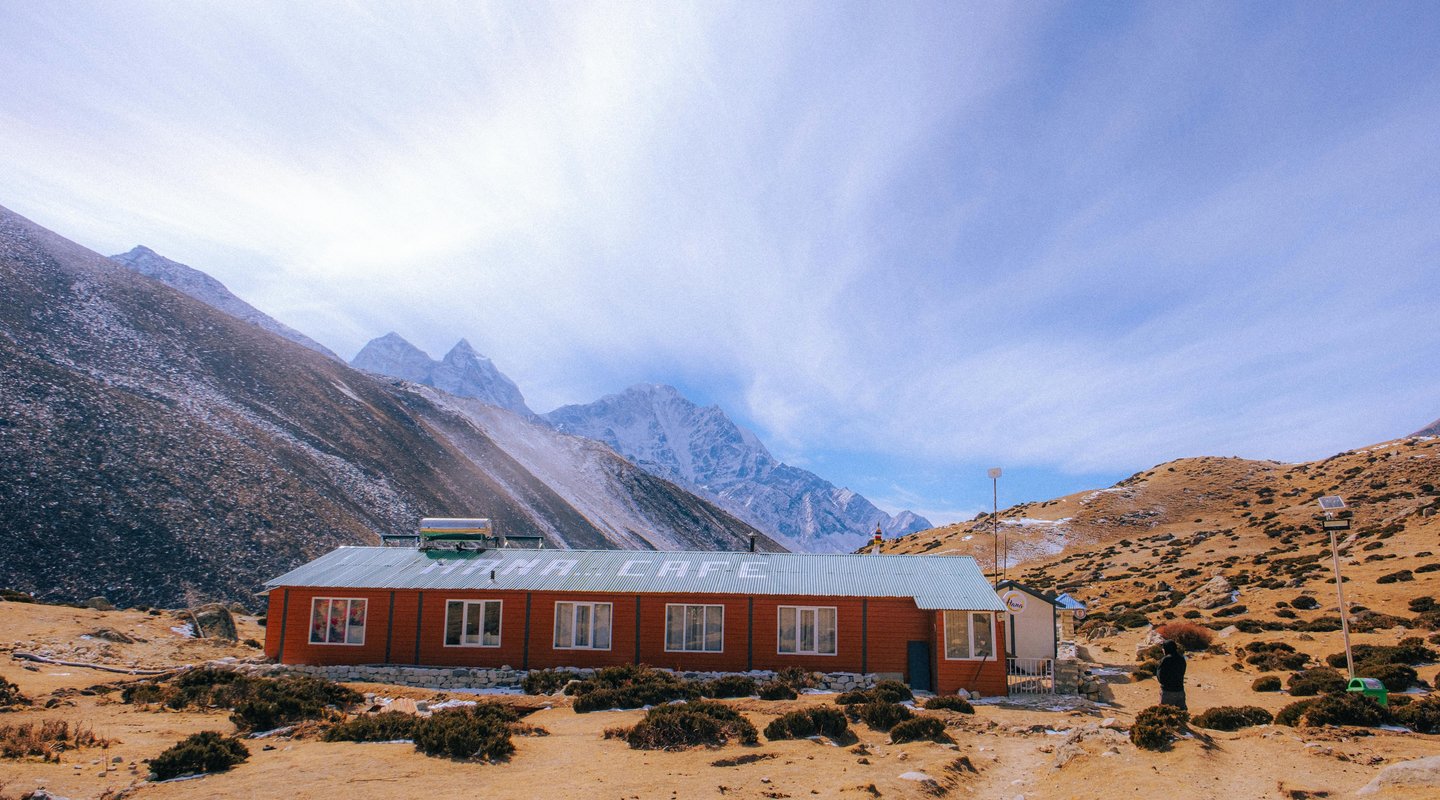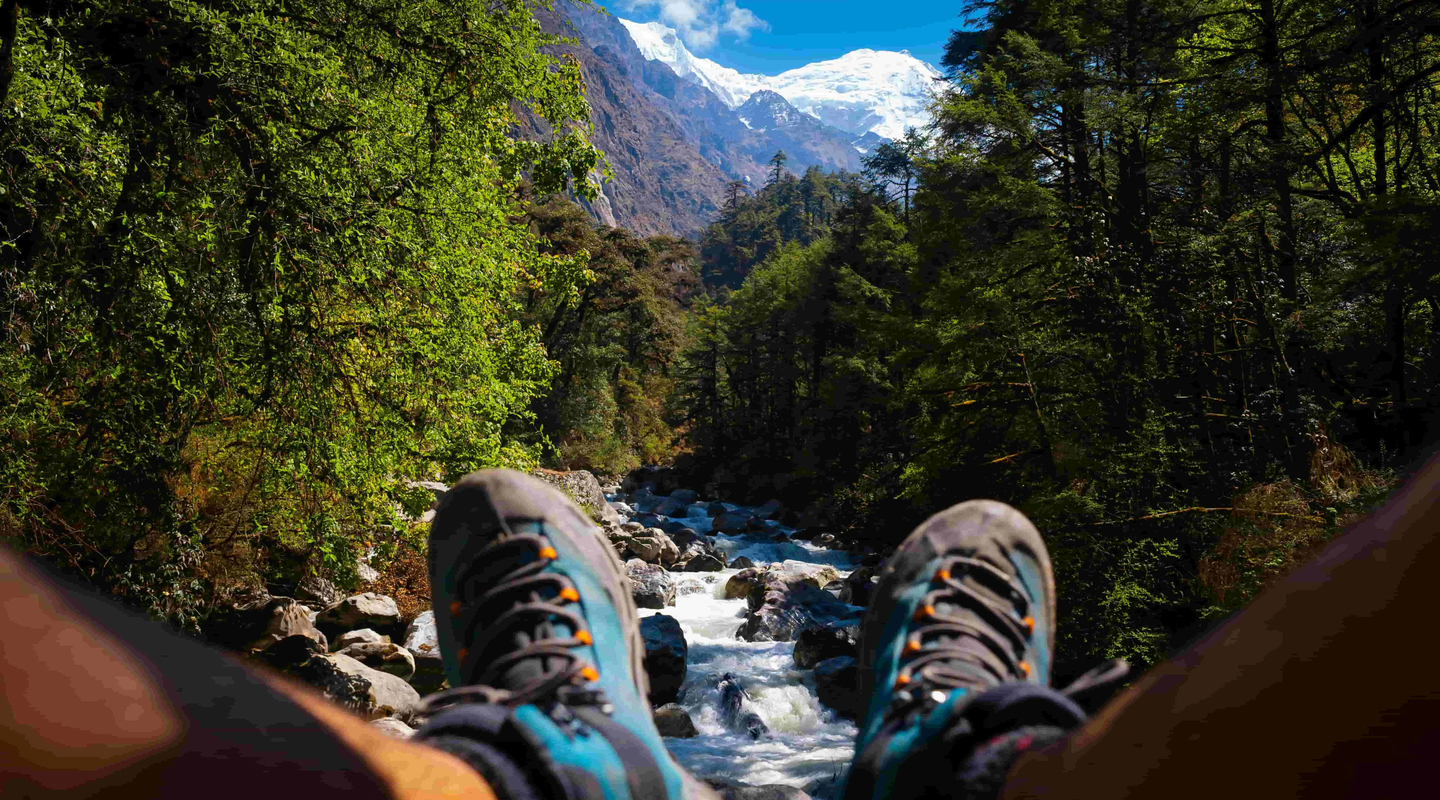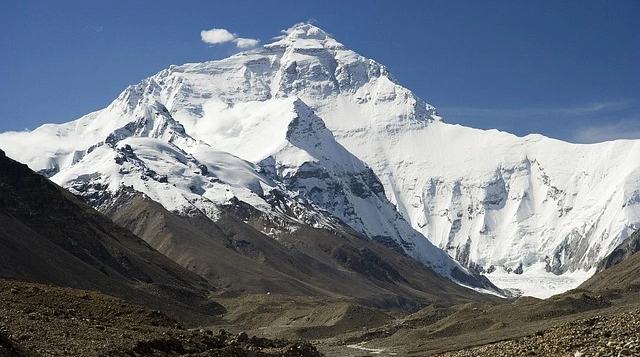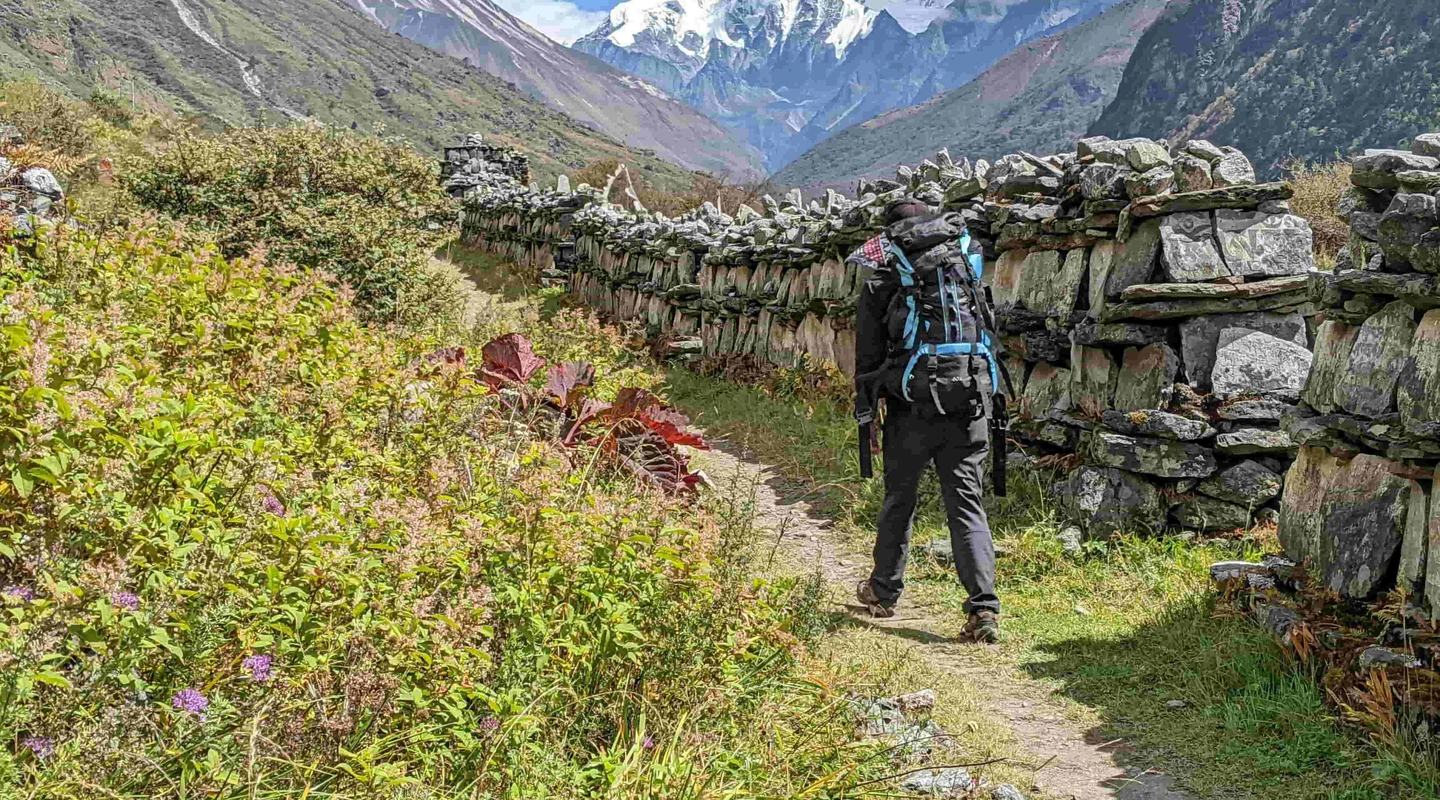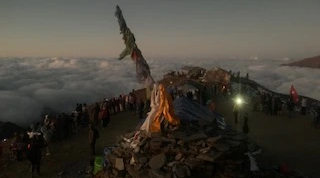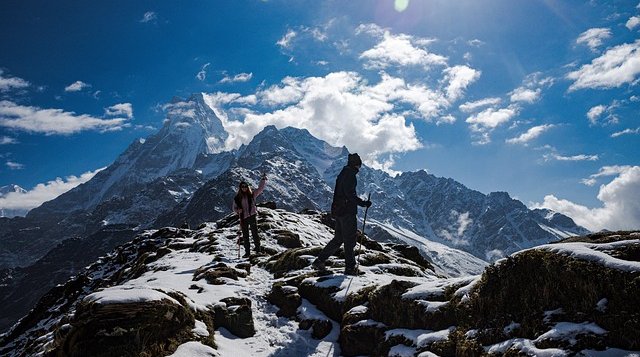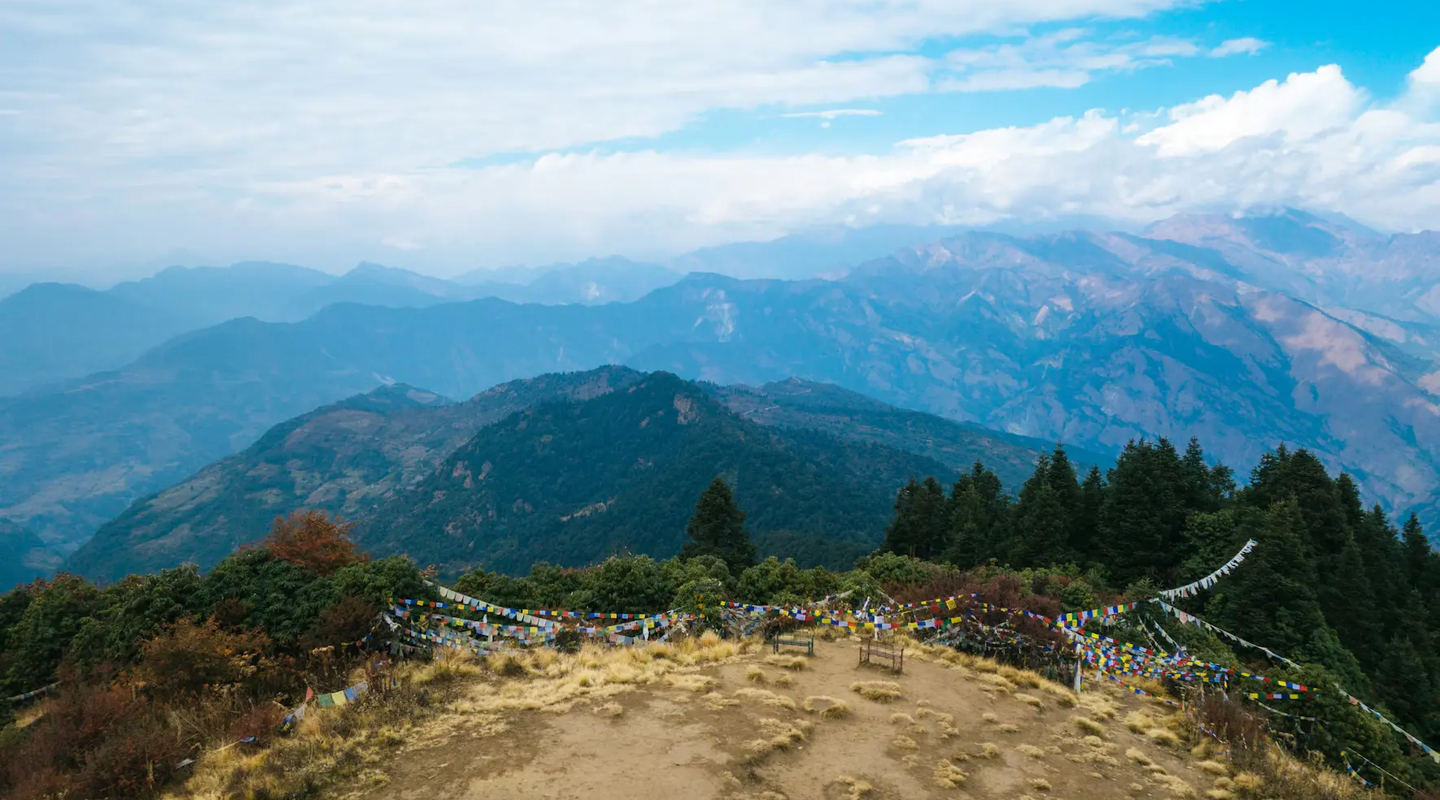Planning your trek to the foot of the world's highest mountain? Understanding the Everest Base Camp trek cost is the first step toward making your Himalayan dream a reality.
The truth is, EBC trek pricing varies wildly. You'll find packages ranging from $800 to $4,000+ depending on your travel style, the season, and what's included. Without proper research, you might overpay—or worse, end up with a budget package that leaves you stranded with unexpected expenses.
At Himalayan Hero Adventures, we've guided hundreds of trekkers to Everest Base Camp. We know exactly what you'll spend, where you can save, and which costs catch first-timers off guard.
How Much Does Everest Base Camp Trek Cost in 2026?
Let's cut straight to the numbers. The Everest Base Camp trek cost depends heavily on how you choose to travel.
Most trekkers spend between $1,200 and $1,800 for a standard guided package from Kathmandu. This typically covers permits, accommodation, guide services, and internal flights to Lukla.
However, that's not the complete picture. Your actual spending depends on several factors we'll explore below.
Quick Answer: Average Cost Per Person
Here's what most trekkers actually spend on their EBC adventure:
Total Everest Base Camp trek cost ranges:
- Absolute minimum (budget): $800-$1,000
- Average mid-range: $1,200-$1,800
- Comfortable standard: $1,500-$2,200
- Luxury experience: $2,500-$4,000+
These figures assume you're starting from Kathmandu. International flights add significantly to your total investment.
The average cost of Everest Base Camp trek for most travelers falls around $1,500 per person. This gets you a reputable guide, decent tea house accommodation, all permits, and Lukla flights.
Budget vs Mid-Range vs Luxury Pricing Tiers
Understanding what each tier offers helps you decide where to invest your money.
Budget Tier ($800-$1,000):
- Group joining treks with 8-12 people
- Basic tea house rooms (shared bathrooms)
- Breakfast-only meal plans
- No porter (carry your own pack)
- Shoulder season departures
Mid-Range Tier ($1,200-$1,800):
- Smaller groups of 4-8 trekkers
- Standard tea house rooms
- Breakfast included, other meals extra
- Shared porter available
- Peak season availability
- Experienced licensed guide
Luxury Tier ($2,500-$4,000+):
- Private trek or small group (2-4 people)
- Premium lodge accommodations
- All meals included
- Personal porter and guide
- Helicopter return option
- Travel insurance assistance
Most first-time trekkers find the mid-range tier offers the best value. You get quality service without unnecessary extras that inflate the price.
Complete Everest Base Camp Trek Cost Breakdown
Now let's dissect exactly where your money goes. This Everest Base Camp trek cost breakdown covers every category of spending.
Permit and Entry Fee Costs
You cannot trek to EBC without proper permits. Read our complete Nepal trekking permits guide to understand all requirements. These are non-negotiable expenses that every trekker pays.
Required permits and fees:
- Sagarmatha National Park Entry Fee: $30 (NPR 3,000)
- TIMS Card (Trekkers' Information Management System): $20 (NPR 2,000)
- Khumbu Pasang Lhamu Rural Municipality Fee: $35
Total permit cost: $85 per person
Some agencies include permits in their package price. Others list them separately. Always clarify before booking to avoid surprises.
The Everest Base Camp trek permit cost hasn't changed significantly in recent years. However, the Nepal government occasionally adjusts fees, so confirm current rates when planning.
Guide and Porter Costs
Hiring local support is highly recommended—and now mandatory for foreign trekkers per Nepal Mountaineering Association regulations.
Current guide and porter rates:
- Licensed trekking guide: $30-$45 per day
- Porter (carries up to 25kg): $25-$30 per day
- Guide-porter combo: $50-$70 per day
For a standard trek, the Everest Base Camp trek guide cost totals approximately $420-$630.
Porter costs add another $350-$420 if you hire one for the full duration.
Why hiring support makes sense:
- "Guides handle logistics and emergencies- but proper preparation is still essential"
- Porters let you enjoy the trek without heavy loads
- Local employment supports the Khumbu economy
- Required by Nepal tourism regulations
Most package prices include guide services. Verify what's covered before comparing quotes.
Flight Costs (Kathmandu-Lukla)
The scenic flight to Lukla is legendary—and a significant expense.
Flight pricing:
- Kathmandu to Lukla round trip: $350-$400
- Domestic airport tax: $15
- Peak season premium: Add $50-$100
Weather delays are common. Budget extra days in Kathmandu as buffer, which means additional accommodation costs.
Alternative options:
- Helicopter to Lukla (one-way): $150-$200 per person (group rate)
- Helicopter return from EBC: $500-$700 per person
- Ramechhap to Lukla flight: $300-$350 (requires extra travel day)
The Lukla flight is included in most packages. However, helicopter options usually cost extra.
Tea House Accommodation Costs
You'll sleep in mountain lodges called "tea houses" throughout the trek. Prices increase with altitude and remoteness.
Nightly rates by category:
- Basic tea house: $5-$10 per night
- Standard tea house: $15-$25 per night
- Premium lodge: $50-$100 per night
Accommodation pricing by location:
- Lower villages (Phakding, Namche): $10-$20
- Mid-altitude (Tengboche, Dingboche): $15-$30
- High altitude (Lobuche, Gorak Shep): $20-$40
For a complete trek, budget $150-$350 for accommodation depending on your comfort preferences.
Most tea houses offer basic rooms with twin beds and shared bathrooms. Hot showers and charging facilities cost extra everywhere.
Food and Meal Costs
Food prices climb steadily as you ascend. Everything must be carried up by porters or yaks, which explains the premium.
Typical meal prices:
- Breakfast: $5-$8
- Lunch: $8-$12
- Dinner: $10-$15
- Hot drinks (tea, coffee): $2-$4
- Bottled water: $2-$5
Daily food budget: $25-$35
Over a full trek, expect to spend $350-$490 on meals.
Money-saving tip: Most tea houses offer dal bhat (lentils with rice) with unlimited refills. It's nutritious, filling, and the best value meal on the mountain.
Packages with "full board" include all meals. This typically adds $200-$400 to your total but eliminates daily spending decisions.
Travel Insurance Costs
Never trek to EBC without comprehensive travel insurance. Medical evacuations cost $3,000-$5,000 without coverage.
Insurance options:
- Basic travel insurance: $50-$80
- Comprehensive with evacuation: $100-$200
- Adventure sports coverage: $150-$250
Your policy must specifically cover:
- Trekking up to 6,000 meters altitude — see WHO altitude guidelines for health precautions
- Emergency helicopter evacuation
- Medical treatment and repatriation
- Trip cancellation and delays
The Everest Base Camp trek insurance cost is a small price for peace of mind. Don't skip this expense.
Gear and Equipment Costs
Proper gear is essential for a safe, comfortable trek. You can buy, rent, or bring equipment from home. Check our complete Everest Base Camp trek packing list before you buy, rent, or bring equipment from home."
Rental prices in Kathmandu (per day):
- Sleeping bag (-20°C rated): $1-$2
- Down jacket: $2-$3
- Trekking poles: $1
- Backpack (50-60L): $1-$2
- Full gear set rental: $5-$8
For a complete trek, gear rental totals approximately $70-$110.
Buying gear in Kathmandu:
- Quality down jacket: $80-$150
- Sleeping bag: $50-$100
- Trekking boots: $60-$120
- Complete outfit: $300-$500
Kathmandu's Thamel district offers abundant gear shops with both genuine and replica brands. Quality varies significantly, so inspect items carefully.
Tips and Miscellaneous Expenses
These smaller costs add up quickly. Budget accordingly to avoid running short.
Expected tipping amounts:
- Guide tip (full trek): $100-$150
- Porter tip (full trek): $50-$80
Common extra expenses:
- Hot showers: $3-$5 each
- Device charging: $2-$5 per charge
- WiFi access: $3-$5 per day
- Snacks and treats: $10-$20 per day
- Souvenirs: $20-$50
- Extra bottled water: $2-$4 each
Total miscellaneous budget: $200-$400
These "hidden" costs catch many trekkers off guard. The Everest Base Camp trek cost advertised rarely includes these daily expenses.
Everest Base Camp Trek Cost 2024 vs 2025 vs 2026
Trek costs evolve yearly due to inflation, permit changes, and market conditions. Here's how pricing has shifted.
Everest Base Camp Trek Cost 2024 (Reference)
The Everest Base Camp trek cost 2024 established baseline prices that inform current rates.
2024 average costs:
- Budget packages: $750-$950
- Standard packages: $1,100-$1,600
- Luxury packages: $2,300-$3,800
Permit fees remained stable throughout 2024. Flight costs saw minor increases due to fuel prices.
Everest Base Camp Trek Cost 2025 (Current)
The Everest Base Camp trek cost 2025 reflects current market conditions and updated fees.
2025 pricing updates:
- Permit fees: Unchanged at $85 total
- Flight costs: Increased 5-10% from 2024
- Accommodation: Slight increases at higher altitudes
- Guide wages: Minor increases supporting fair pay
2025 package pricing:
- Budget: $800-$1,000
- Standard: $1,200-$1,800
- Luxury: $2,500-$4,000
The overall Everest Base Camp trek cost 2025 averages 5-8% higher than 2024 rates.
Everest Base Camp Trek Cost 2026 (Projected)
Planning ahead? Here's what to expect for Everest Base Camp trek cost 2026.
Projected changes:
- Potential permit fee increases (government review pending)
- Continued flight cost inflation
- Possible new sustainability fees
- Lodge upgrades may increase accommodation costs
Estimated 2026 pricing:
- Budget: $850-$1,100
- Standard: $1,300-$1,900
- Luxury: $2,700-$4,200
Book early if you're planning a 2026 trek. Prices typically lock in at booking time with reputable operators.
Everest Base Camp Trek Cost by Country
Your starting location significantly impacts total spending. Here's what trekkers from different regions should budget.
Nepal Everest Base Camp Trek Cost (From Kathmandu)
Starting from Kathmandu offers the most affordable option since you avoid international flight costs.
Nepal-based pricing:
- Budget package: $800-$1,000
- Standard package: $1,200-$1,500
- Luxury package: $2,500-$4,000
The Nepal Everest Base Camp trek cost represents the base price. All international trekkers add their home-to-Kathmandu flights.
Himalayan Hero Adventures offers all-inclusive packages starting at $1,299 from Kathmandu including permits, guide, accommodation, meals, and Lukla flights.
Everest Base Camp Trek Cost from India (in INR/Rupees)
Indian trekkers represent a large portion of EBC visitors. Here's the Everest Base Camp trek cost from India breakdown.
Pricing in Indian Rupees:
- Budget: ₹70,000-₹90,000 ($850-$1,100) — check current exchange rates
- Standard: ₹1,00,000-₹1,30,000 ($1,200-$1,600)
- Luxury: ₹2,20,000-₹3,50,000 ($2,700-$4,300)
Additional costs for Indian trekkers:
- Delhi to Kathmandu flight: ₹8,000-₹15,000
- Mumbai to Kathmandu flight: ₹10,000-₹18,000
- Visa on arrival (Nepal): Free for Indian citizens
The Everest Base Camp trek cost in rupees totals approximately ₹85,000-₹1,50,000 for most Indian trekkers.
Pro tip: Many Indian operators partner with Nepali agencies. Book directly with Nepal-based companies like Himalayan Hero Adventures for better rates and local expertise.
Everest Base Camp Trek Cost from UK
British trekkers should budget for longer flights and higher overall costs.
Pricing in British Pounds:
- Budget: £1,500-£2,000
- Standard: £2,500-£3,500
- Luxury: £4,000-£6,000
UK-specific costs:
- London to Kathmandu flights: £500-£800 (return)
- Travel insurance (UK providers): £50-£150
- Gear purchases (if needed): £200-£400
The Everest Base Camp trek cost from UK averages £2,500-£3,500 for a comfortable experience including flights.
Everest Base Camp Trek Cost from USA (in USD)
American trekkers face the longest journey but have excellent package options.
Pricing in US Dollars:
- Budget: $2,000-$2,500
- Standard: $3,000-$4,000
- Luxury: $5,000-$7,000
USA-specific costs:
- Major city to Kathmandu flights: $1,000-$1,500 (return)
- Travel insurance (US providers): $100-$200
- Visa costs: $30 (on arrival)
The Everest Base Camp trek cost for Americans typically totals $3,000-$4,500 including international travel.
Budget Everest Base Camp Trek Cost
Want to experience EBC without breaking the bank? Here's how to minimize your spending.
How to Reduce Your EBC Trek Costs
Smart planning can save $300-$500 without sacrificing safety or enjoyment.
Proven cost-cutting strategies:
- Book group joining treks (share guide/porter costs)
- Travel during shoulder season (May or November)
- Stay in basic tea houses
- Eat dal bhat for most meals (unlimited refills)
- Carry your own daypack
- Rent gear in Kathmandu instead of buying
- Use water purification instead of buying bottles
- Skip WiFi and embrace the digital detox
What NOT to cut:
- Quality guide services
- Proper travel insurance
- Adequate food and hydration
- Appropriate clothing layers
The budget Everest Base Camp trek cost bottoms out around $800-$1,000 with careful planning.
Budget Package Options
Several operators offer affordable group treks without compromising safety.
What budget packages typically include:
- Shared guide (1 guide per 8-10 trekkers)
- Basic tea house accommodation
- Breakfast only
- All permits and fees
- Lukla flights
- Airport transfers
What's usually excluded:
- Lunch and dinner
- Porter services
- Hot showers and charging
- Personal expenses
- Tips
Budget packages work best for physically fit trekkers comfortable carrying their own gear and managing daily meal purchases.
Luxury Everest Base Camp Trek Cost
For those seeking premium comfort at altitude, luxury options deliver exceptional experiences.
What Luxury Packages Include
Premium pricing buys significant upgrades throughout your trek.
Luxury package features:
- Private guide exclusively for your group
- Personal porter for each trekker
- Best available rooms at each stop
- All meals included (breakfast, lunch, dinner)
- Premium lodge accommodations where available
- Helicopter return option
- Comprehensive travel insurance assistance
- 24/7 emergency support
- Pre-trip gear consultation
- Airport VIP services
The luxury Everest Base Camp trek cost reflects these enhanced services and personalized attention.
Premium Trek Pricing
Expect to pay $2,500-$4,000+ per person for luxury EBC experiences.
Premium options and costs:
- Private guided trek: $2,500-$3,500
- Luxury lodge trek: $3,000-$4,000
- Helicopter-assisted trek: $3,500-$5,000
- Ultimate luxury (private helicopter + premium lodges): $5,000-$7,000
Luxury trekkers enjoy better rest, superior nutrition, and reduced physical strain—all contributing to higher summit success and enjoyment.
Guided vs Solo: Which Costs More?
Since 2023, solo trekking without a guide is no longer permitted in Nepal's major trekking regions. However, understanding the cost comparison remains valuable.
Everest Base Camp Trek Guide Cost Per Day
Professional guide services represent excellent value when calculated daily.
Daily guide rates:
- Licensed trekking guide: $30-$45 per day
- Premium/senior guide: $45-$60 per day
- Guide-porter combination: $50-$70 per day
The Everest Base Camp trek guide cost per day covers:
- Route navigation and safety management
- Accommodation bookings
- Emergency response coordination
- Cultural interpretation
- Altitude sickness monitoring
For a standard trek, guide costs total $420-$630—a reasonable investment for professional support.
Solo Trekking Cost Comparison
While truly solo trekking is no longer permitted, you can minimize group size.
Private trek for one person:
- Guide services: $500-$700
- Porter (optional): $350-$420
- Accommodation: $150-$300
- Permits: $85
- Flights: $350-$400
- Food: $350-$490
Total solo-style trek: $1,785-$2,395
This exceeds group trek costs by $500-$800 due to non-shared guide expenses.
The Everest Base Camp trek solo cost (with mandatory guide) averages $1,800-$2,200 for budget-conscious independent travelers.
Hidden Costs and Extra Expenses
Every experienced trekker knows that advertised prices never tell the full story.
Costs Most Trekkers Forget
Budget an extra $200-$400 for these commonly overlooked expenses.
Frequently forgotten costs:
- Kathmandu hotel nights (pre/post trek): $20-$50 per night
- Weather delay accommodation: $30-$60 per extra day
- Visa fees (on arrival): $30 for most nationalities
- Kathmandu meals and transport: $15-$25 per day
- Gear repairs or replacements: $20-$100
- Medical supplies and medications: $30-$50
- Celebratory dinner after trek: $20-$40
On-trail hidden costs:
- Hot showers: $3-$5 each (you'll want several)
- Device charging: $2-$5 per charge
- WiFi: $3-$5 per hour
- Snack purchases: $5-$15 per day
- Bottled water: $3-$5 each (budget 2-3 daily)
- Extra tea/coffee: $2-$4 each
These extras can add $15-$30 per day beyond meal costs.
Emergency and Evacuation Costs
Understanding emergency expenses emphasizes why insurance is essential.
Emergency cost scenarios:
- Helicopter evacuation to Kathmandu: $3,000-$5,000
- Helicopter evacuation to Lukla only: $1,500-$2,500
- Medical treatment in Kathmandu: $500-$2,000+
- Emergency medication on trail: $50-$200
- Extended hospital stay: $200-$500 per day
Without insurance, a medical emergency could cost more than your entire trek budget.
The total cost of Everest Base Camp trek should always include comprehensive insurance to protect against these scenarios.
FAQs About Everest Base Camp Trek Cost
How much does Everest Base Camp trek cost?
The Everest Base Camp trek cost ranges from $1,200 to $1,800 for standard guided packages from Kathmandu. This typically includes permits, accommodation, guide, and Lukla flights but excludes international airfare and personal expenses.
How much does a trek to Everest Base Camp cost per day?
Daily costs average $80-$130 depending on your travel style. Budget trekkers spend approximately $60-$80 daily while luxury trekkers may spend $200+ per day on premium services.
What is the cost of Everest Base Camp trek permits?
Total permit costs are $85 per person including Sagarmatha National Park fee ($30), TIMS card ($20), and Khumbu Pasang Lhamu Rural Municipality fee ($35).
How much does Everest Base Camp trek cost from India?
Indian trekkers should budget ₹70,000 to ₹1,30,000 ($850-$1,600) for the trek from Kathmandu, plus ₹8,000-₹18,000 for flights from Delhi or Mumbai.
Is Everest Base Camp trek expensive?
Compared to other Himalayan adventures, EBC offers moderate pricing. While not the cheapest Nepal trek, it provides excellent value considering the world-famous destination and well-developed infrastructure.
How much does an Everest Base Camp guide cost?
Licensed guides charge $30-$45 per day in Nepal. For a complete trek, budget $420-$630 for guide services, though most packages include this cost.
What is the cheapest way to do Everest Base Camp trek?
Book a group joining trek during shoulder season, stay in basic tea houses, eat dal bhat, carry your own pack, and rent gear in Kathmandu. Minimum budget: $800-$1,000.
Does Everest Base Camp trek cost include meals?
Most standard packages include breakfast only. Full-board options adding all meals cost an extra $200-$400. Independent trekkers should budget $25-$35 daily for food.
How much should I budget for tips on EBC trek?
Standard tipping is $100-$150 for guides and $50-$80 for porters for the complete trek. Tipping is customary and expected in Nepal's trekking industry.
What hidden costs should I expect on EBC trek?
Budget $150-$250 extra for hot showers ($3-5), charging ($2-5), WiFi ($3-5), bottled water ($2-4), snacks, and other miscellaneous expenses not included in packages.
Final Verdict: Is Everest Base Camp Trek Worth the Cost?
After breaking down every expense, the question remains: is the Everest Base Camp trek cost justified?
Absolutely.
Standing at the foot of Mount Everest—surrounded by the world's most dramatic peaks—delivers a life-changing experience that transcends any price tag. The Khumbu region offers unmatched natural beauty, rich Sherpa culture, and personal achievement few adventures can match.
What you're really paying for:
- Access to the world's most iconic mountain destination
- Professional support ensuring your safety
- Comfortable tea house infrastructure
- Unforgettable Himalayan memories
- Personal accomplishment and growth
The investment breakdown:
For $1,200-$1,800, you receive a professionally guided adventure through some of Earth's most spectacular scenery. That's roughly $80-$130 per day for an experience many consider life's greatest adventure.
Compare that to a week at an average resort, and EBC represents remarkable value.
Book Your Everest Base Camp Trek with Himalayan Hero Adventures
Ready to experience Everest Base Camp without pricing surprises?
Himalayan Hero Adventures offers transparent, all-inclusive packages designed for budget-conscious adventurers who refuse to compromise on quality.
Our EBC trek packages include:
- All permits and entry fees
- Experienced English-speaking guide
- Comfortable tea house accommodation
- Daily breakfast
- Kathmandu-Lukla-Kathmandu flights
- Airport transfers
- Porter service available
- 24/7 emergency support
Starting at just $1,299 per person, our packages deliver exceptional value with complete price transparency.
Why trek with us:
- No hidden costs or surprise fees
- Small group sizes (maximum 12 trekkers)
- Experienced local Sherpa guides
- Best price guarantee
- Free permit processing
- Flexible booking policies
Don't let Everest Base Camp trek cost concerns hold you back from your Himalayan dream.Contact Himalayan Hero Adventures today for a personalized quote to EBC and start planning your journey to the roof of the world.
Your adventure awaits.

